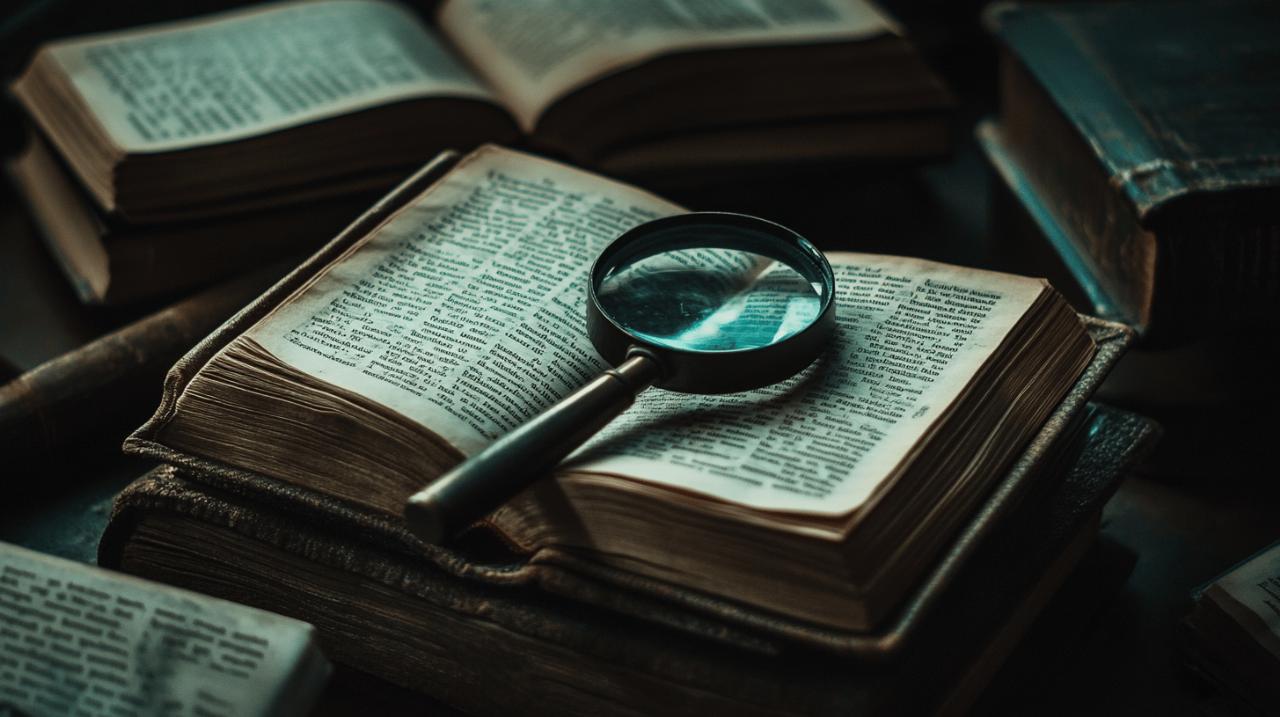Dexter Morgan, the blood spatter analyst with a rather sinister sideline, has captivated audiences with his darkly comic observations and chilling internal dialogues. The television series Dexter is not merely a parade of gruesome tableaux; it is a study in contrasts, blending Miami's sun-drenched beaches with the shadowy recesses of a killer's mind. The show's brilliance lies in its ability to transform a monster into a strangely relatable figure, one whose utterances linger long after the credits roll. From his ritualistic mantras to his fleeting moments of genuine emotion, Dexter's words offer a window into a world where morality is murky and humanity is perpetually questioned.
The dark passenger speaks: dexter's most chilling inner monologues
Dexter Morgan's interior landscape is a labyrinth of dark thoughts and self-aware commentary. His inner voice, often delivered with a detached yet sardonic tone, serves as the narrative backbone of the series. These monologues are not merely exposition; they are the essence of his character, revealing the tension between his learned humanity and his primal urges. The recurring phrase that opens many of his nocturnal escapades is a haunting reminder of the cyclical nature of his compulsions. It is a mantra that underscores the inevitability of his actions, a ritual acknowledgment that what he does is as much a part of him as breathing. This repetition creates a rhythm that draws viewers into his mindset, making them complicit in his dark journey.
Mantras of a Vigilante: Recurring Phrases That Define Dexter
Throughout the series, Dexter employs certain phrases that become synonymous with his identity. These mantras are not mere catchphrases; they are affirmations of his existence and his purpose. One such line encapsulates his duality, a declaration that he is not a mindless brute but rather a vigilante operating under a strict code. This distinction is crucial to his self-perception, allowing him to justify his actions within a framework of justice, however twisted it may be. Another oft-repeated sentiment revolves around his relationship with blood, both as a forensic specialist and as a predator. His professional fascination with blood spatter analysis mirrors his personal obsession, creating a dual existence where his day job and his night-time activities are inextricably linked. These mantras serve as anchors, grounding his character in a reality that is both horrifying and oddly principled.
The philosophy behind the blade: understanding dexter's moral compass
Dexter's worldview is shaped by the code instilled in him by his adoptive father, Harry. This code is not a moral compass in the traditional sense but rather a set of guidelines designed to channel his urges in a manner that minimizes collateral damage. His philosophy is predicated on the belief that some individuals forfeit their right to life through their own heinous actions. This utilitarian approach to justice allows him to rationalise his killings as a form of societal cleansing. Yet, beneath this veneer of vigilantism lies a profound struggle with his own humanity. He questions whether his capacity for love, loyalty, and connection is genuine or merely an elaborate facade. This internal conflict is articulated through his introspective observations, which often juxtapose his monstrous actions with his yearning for normalcy. The philosophy behind his blade is thus a complex tapestry of learned behaviour, innate compulsion, and a desperate search for meaning in a life defined by darkness.
Blood, bonds, and banter: dexter's relationships through his words
While Dexter's internal monologues reveal his solitary nature, his interactions with others expose the cracks in his carefully constructed persona. His relationships, particularly with his sister Debra and his romantic partner Rita, are marked by moments of unexpected vulnerability. These exchanges, laden with subtext and genuine emotion, demonstrate that Dexter is not entirely devoid of human connection. His words to those he holds dear often carry a weight that belies his self-proclaimed inability to feel. Through these dialogues, the series explores the possibility that even a monster can experience love, loyalty, and regret.
Sibling dynamics: the most poignant exchanges with debra
Debra Morgan, Dexter's adoptive sister and a detective with Miami Metro Homicide, occupies a unique space in his life. She is one of the few people who truly knows him, albeit not the full extent of his dark activities for much of the series. Their exchanges are often charged with a mix of affection, frustration, and an unspoken understanding. Dexter's admissions to Debra reveal his fear of exposure and his struggle to reconcile his actions with her sense of justice. One particularly poignant moment occurs when he confesses that he is not a monster but rather someone who has become adept at concealment. This line encapsulates the core of their relationship: Debra's unwavering belief in Dexter's goodness clashing with the reality of his true nature. Their dialogue is peppered with moments of dark humour and raw honesty, making their bond one of the most compelling aspects of the series.
Love and Longing: Dexter's Rare Moments of Genuine Emotion
Dexter's romantic entanglements provide some of the series' most tender and unsettling moments. His relationship with Rita Bennett, a single mother with her own traumatic past, forces him to confront the possibility of a normal life. His declaration of love for Rita is delivered with a simplicity that underscores its sincerity, even as he admits his limited understanding of the emotion itself. This vulnerability is a stark departure from his usual detachment, offering a glimpse of the man he might have been under different circumstances. Similarly, his interactions with other romantic interests are marked by a tension between his desire for connection and his fear of losing control. These moments of longing and affection reveal that Dexter's emotional range, while stunted, is not entirely absent. His words in these instances are stripped of the usual irony, replaced by a tentative hope that he might, against all odds, find a place in the world where he truly belongs.
Miami vice meets dark justice: the setting's influence on memorable lines
 Miami itself is a character in Dexter, its vibrant, sun-soaked exterior serving as a stark counterpoint to the darkness that permeates the narrative. The city's dual nature, with its glamorous beaches and seedy underbelly, provides a rich backdrop for Dexter's exploits. This contrast is reflected in his observations, which often highlight the absurdity of conducting such grim activities in a place synonymous with leisure and beauty. The setting's influence on the series' most memorable lines cannot be overstated, as it amplifies the tension between appearance and reality that defines Dexter's existence.
Miami itself is a character in Dexter, its vibrant, sun-soaked exterior serving as a stark counterpoint to the darkness that permeates the narrative. The city's dual nature, with its glamorous beaches and seedy underbelly, provides a rich backdrop for Dexter's exploits. This contrast is reflected in his observations, which often highlight the absurdity of conducting such grim activities in a place synonymous with leisure and beauty. The setting's influence on the series' most memorable lines cannot be overstated, as it amplifies the tension between appearance and reality that defines Dexter's existence.
Sunshine and Shadows: How Miami's Contrast Shapes the Narrative
The juxtaposition of Miami's bright, bustling daylight scenes with Dexter's nocturnal activities creates a visual and thematic dissonance that is central to the show's appeal. Dexter himself often remarks on this irony, noting how the city's cheerful facade belies the darkness lurking just beneath the surface. His observations about the public's fascination with blood and violence, delivered against the backdrop of palm trees and ocean waves, underscore the hypocrisy of a society that consumes true crime with relish while recoiling from its reality. This contrast is not merely aesthetic; it is a reflection of Dexter's own duality. Just as Miami presents a polished exterior while harbouring its own shadows, Dexter navigates the world with a veneer of normalcy that conceals his monstrous nature. The setting thus becomes a mirror for his internal struggle, amplifying the impact of his words and actions.
From crime lab to kill room: professional observations turned personal
Dexter's profession as a blood spatter analyst provides ample opportunity for darkly comic commentary. His clinical assessments of crime scenes often bleed into his personal reflections, creating a seamless transition between his two worlds. A simple remark about the volume of blood at a scene, delivered with professional detachment, takes on a different meaning when one considers his intimate relationship with such tableaux. These observations, grounded in his expertise, are imbued with a personal significance that only the audience fully appreciates. His ability to navigate both the sterile environment of the crime lab and the intimate brutality of his kill rooms speaks to his unique position as both hunter and analyst. The lines he delivers in these contexts are a masterclass in subtext, revealing layers of meaning that enrich the narrative and deepen our understanding of his character.
Legacy of a Loveable Monster: Why These Quotes Resonate with Audiences
The enduring appeal of Dexter lies in its ability to make an audience root for a serial killer. This paradox is achieved through a combination of compelling writing, nuanced performance, and a protagonist whose words reveal a surprising depth of self-awareness and dark humour. Dexter's most memorable lines resonate because they tap into universal themes of identity, morality, and the human condition, even as they emanate from a decidedly inhuman perspective. The legacy of these quotes extends beyond the series itself, influencing popular culture and sparking discussions about the nature of justice and the limits of empathy.
Dark humour done right: the appeal of dexter's twisted wit
Dexter's wit is a defining feature of the series, providing levity in the midst of grim subject matter. His dry, often self-deprecating humour serves as a coping mechanism, a way to distance himself from the horror of his actions. Lines that juxtapose the mundane with the macabre, such as his musings on everyday activities while contemplating murder, highlight the absurdity of his existence. This brand of dark comedy is executed with precision, never veering into gratuitous territory or undermining the gravity of the narrative. It is this balance that makes his humour so effective, allowing audiences to laugh while simultaneously grappling with the moral implications of what they are witnessing. The twisted wit of Dexter Morgan has become a hallmark of the series, cementing its place in the pantheon of darkly comedic dramas.
Cultural impact: how dexter's lines have entered popular consciousness
The influence of Dexter extends far beyond its original run, with many of its most iconic lines becoming part of the broader cultural lexicon. Phrases that encapsulate his philosophy, his struggle, and his dark humour are frequently quoted and referenced in discussions of morality, justice, and the anti-hero archetype. The series has inspired countless analyses and debates, with viewers dissecting the implications of Dexter's words and actions. This cultural resonance is a testament to the show's ability to challenge conventional narratives and present a protagonist who defies easy categorisation. Dexter's lines have entered popular consciousness not because they offer easy answers but because they pose difficult questions about what it means to be human. They remind us that morality is not always black and white, and that even those who walk in darkness can illuminate truths about the world we inhabit.





